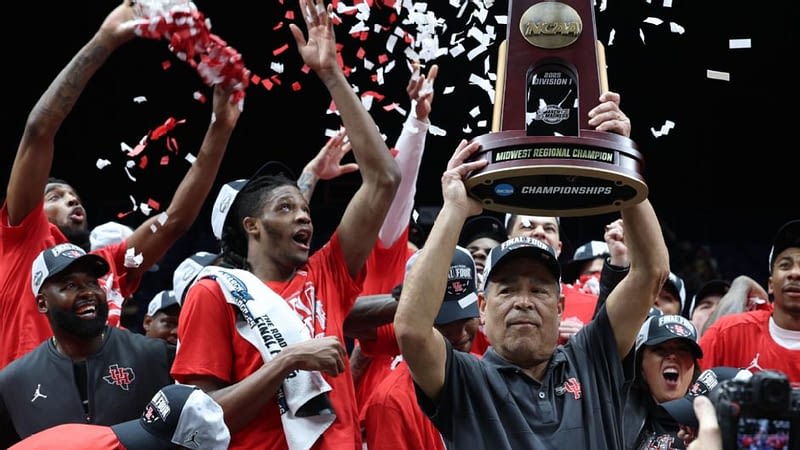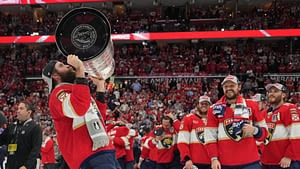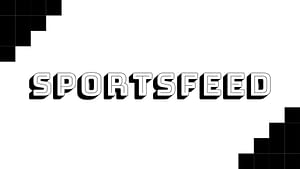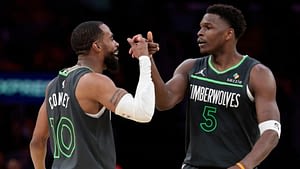Kelvin Sampson’s Journey: From Career Crisis to Final Four Triumph
SAN ANTONIO — In the heart of Texas, Kelvin Sampson found himself overwhelmed with emotion as he scrolled through his phone, which was buzzing with over 400 congratulatory messages. Among these messages, one stood out, bringing a tear to his eye. It was from none other than Gregg Popovich, the legendary coach of the San Antonio Spurs.
“I’m the happiest person in San Antonio today,” Popovich wrote, celebrating Houston’s victory over Tennessee in the Elite Eight, which secured Sampson’s second Final Four appearance with the Cougars. “But not as happy as you, Karen and the family and your whole program built with grit, character and love. Bravo, my good friend.”
Popovich, a five-time NBA champion, suggested Sampson celebrate with a “good red” wine. This advice carried weight, coming from the man who had once offered Sampson a lifeline when his career was in jeopardy.
Back in February 2008, after Sampson resigned from Indiana amid NCAA violations, Popovich extended an invitation to join his coaching staff. Fast forward 17 years, and Sampson is back in San Antonio, now a towering figure in the profession, with a third Final Four added to his Hall of Fame résumé.
“He did,” Karen Sampson, Kelvin’s wife, confirmed when asked if Popovich had saved her husband’s career. “He called when a lot of people weren’t calling and said, ‘Get here as soon as you can.'”
The Sampsons’ gratitude for Popovich runs so deep that they named their family dog after him: Poppy.
Two decades after Popovich’s unwavering support, Sampson has re-emerged as a leader in college basketball, guiding one of the sport’s most consistently dominant programs to the national semifinals. This marks their sixth consecutive Sweet 16 appearance, the longest active streak in the country. (It would be even longer if not for Jordan Poole’s 30-foot buzzer-beater in Michigan’s second-round win over Houston in 2018.)
Lauren Sampson, Kelvin’s daughter, refers to this journey as “The Detour,” which has now come full circle in the city where her father began his comeback. Sampson’s approach remains unchanged: family-oriented, with a staff of former players and a style built on grit and determination.
“There is validation that we’re doing it our way and it works,” said Kellen Sampson, Kelvin’s son and the program’s coach-in-waiting. “Let’s go be great in the new landscape, and let’s do it our way.”
In a jubilant coaches’ locker room in Indianapolis, Kellen Sampson playfully dribbled a ball, letting it slip away as he declared “loose ball.” His 6-year-old daughter Maisy dove to the floor to secure it, embodying the essence of Kelvin Sampson’s journey to his third Final Four: blending the old with the new.
Karen Sampson shared that she receives floods of game day texts from former players at Montana Tech, where Sampson began his head-coaching career in 1981. These players fondly recall memories of bus brakes freezing on road trips and pregame meals of Mountain Dew and potato chips.
Houston’s hallmark regular-season victory came in double overtime at Kansas in late January, marking Kelvin Sampson’s first win in Allen Fieldhouse on his ninth attempt. In the postgame celebration, Tim Heskett, who played for Sampson at Oklahoma, was there to share the moment.
When the Cougars traveled to Arizona in mid-February, Jim Livengood, the former athletic director at Washington State during Sampson’s tenure, was present at Houston’s hotel. And in the Elite Eight, an old friend and Texas rival from his Oklahoma days, Rick Barnes, stood on the opposite sideline.
Even the security guards in Wichita, Kansas, where Houston played the opening rounds of this NCAA tournament, were the same as when the Cougars were there in 2018. This time, they celebrated with Houston and its staff.
“They all had tears in their eyes with us,” Lauren Sampson said. “There’s been so many of those moments here at Houston.”
Adversity has shaped Sampson’s journey back to San Antonio. His NCAA issues left Oklahoma and Indiana on probation for penalties related to excess phone calls. Although the rules have changed, his issues at Indiana were significant enough to earn a five-year show-cause penalty, a significant deterrent to being hired again at the college level. However, his six years in the NBA helped him grow as an offensive coach. He credits his former boss in Milwaukee, Scott Skiles, for the winning inbound play that got Houston past Purdue in this year’s Sweet 16.
When Sampson returned to college after Mack Rhoades hired him at Houston in 2014, there was a change. Lauren Sampson noted that their family is more insulated, hardened by the experience, and now appreciative of everything that had been taken away.
“When you’re out of it and you kind of get perspective and then you come back in, I think it changed all of us in the way we view things,” she said.
The Detour also served as a reminder to double down on what works.
- “We don’t have to ask permission or apologize for doing it the way that we want to do it, but we choose to do it with family,” Kellen Sampson said. “We choose to invest in our guys, we choose to invest in our people.”
And in the ultimate full-circle way, that’s working at the highest levels of the sport.
Kelvin Sampson is the son of a high school coach from Pembroke, North Carolina, where he watched his father, John W. “Ned” Sampson, work odd jobs in his three-month offseason — selling encyclopedias, teaching driver’s education, selling insurance, and working in tobacco markets.
At 69, Sampson has seen and experienced enough to be part preacher, part teacher. He is not afraid to be direct in coaching and loving his players.
This season, he tracked the development of star point guard Milos Uzan through a throwback reference to the Houston Chronicle: “Milos was softer than Parkay Margarine in the microwave when he got here. He learned to get tougher.”
The arc of a Kelvin Sampson team still resembles what we once knew about college basketball: Some familiar veterans improve each year (sixth-year J’Wan Roberts and junior Emanuel Sharp), the occasional transfer such as Uzan (from Utah) or L.J. Cryer (from Baylor) to strengthen the roster, and a development through grit and old-fashioned hard coaching.
The bricks from Montana Tech might be gone, but the ethos has remained.
“You have to push kids to places that they don’t have the ability to push themselves,” Sampson said.
Part of that push has to do with the blunt reality that comes with 798 college basketball wins, the second most of any active coach without a national title. (Only his close friend Barnes has more.)
Few understand the motives and motivations of Sampson better than Hollis Price, his former star player at Oklahoma who led that team to Sampson’s first Final Four in 2002. Price, Kellen Sampson, and K.C. Beard have all been on the Houston staff since this current journey started in 2014.
Few have seen the Sampson process of growing players through tough love more than Price, who believes it resonates now more than ever.
“If you listen to Coach Sampson, one thing he tells our guys is, ‘Y’all need me more than I need you,'” Price said. “And I think that’s what this generation [doesn’t] get. You need a coach who’s going to stay on you and want to critique every little thing that you do wrong to get you to the level that you can. And I think our guys appreciate that.”
What’s unique about this Sampson team is that the typical intensity that comes with the country’s top-ranked defensive team also comes with high-end offensive flair. Houston is still susceptible to scoring lulls — the final eight minutes against Purdue until the sun-kissed in-bounds play — comes to mind. But the Cougars have the country’s third-best 3-point shooting rate (39.7%) and 10th-best offense by KenPom’s efficiency metrics.
That blend makes this team the most likely under Sampson to win a title since his 2002 Oklahoma team, led by Price and fellow Houston staffer Quannas White.
The players know the opportunity is there to push Sampson over the top for the only accomplishment missing from his résumé, the same way he has pushed them over the years.
“It would definitely mean a lot,” Roberts said. “I feel like he put in so much love and effort into this game. … I feel like it’s one more accolade that he needs to solidify everything. We’re going to try our hardest to give him that one last push.”
True to the intentional and direct way that Kelvin Sampson made it from Butte, Montana, to the Final Four, he didn’t spend much time dreaming.
There’s always the next recruit or the next practice plan. That means that over five decades of coaching, Karen Sampson has never heard her husband ponder what it would mean to win a championship.
“The only thing I’ve ever heard him say is that he’d like to coach on Monday night,” she said, referencing the national title game. “Got to get to Monday night to be able to do anything else.”
Kelvin Sampson believes his 2002 Oklahoma team, a No. 2 seed, got an unlucky break when White sprained his ankle in the Thursday practice of Final Four week before losing to 5-seeded Indiana. He admits that his other Final Four team, the 2021 Houston Cougars, wasn’t good enough to beat that year’s eventual national champion Baylor.
In Sampson’s 21 NCAA tournaments at four schools, he has learned that winning six games requires being both good and a bit lucky.
Top-seeded Duke awaits in the national semifinal, a fitting blue blood in the path of a coach who has prided himself on coming up the hard way. And perhaps it will deliver Sampson that final missing piece from his long and circuitous journey in the most fitting location.
Regardless of what happens Saturday, Sampson is secure with his legacy.
“I would hope my legacy would be [that] I tried to help my kids be the best they could be, so that when they got older they were in a position to help somebody be the best they could be,” Sampson said on Friday. “If that’s my legacy, then I think I’ve had a career worth having.”
Originally Written by: Pete Thamel





















